- Home
- Paul Christopher
The Templar Legion Page 6
The Templar Legion Read online
Page 6
Holliday slung the loaded rifle over his shoulder. “We’re not.” He headed for the rope and then began to climb.
“Son of a bitch!” Mike Harris stared through the big Steiner binoculars at the road below. He was flat on his belly at the top of the ridge above the bridge. Seeing Holliday getting out of the Land Cruiser was like a nightmare come to life.
“What’s the matter?” said the man with the rifle, lying beside him. His name was Pieter Jonker, an ex–Project Barnacle assassin provided by Faulkener. “I got the krimpie, didn’t I?”
“You missed the woman, you idiot!”
“I wasn’t hired to shoot the dom doos woman, was I, mate?” Jonker said. “I can’t help it if a Good Samaritan comes along.”
Harris kept his eyes glued to the binoculars. He saw Holliday crawl up over the top of the gorge, something slung over his back.
“You want him dead, too?” Jonker asked, his eye up to the rifle scope.
“Shoot!” Harris bellowed.
Jonker squeezed the trigger of the Truvelo CMS rifle. A puff of sand erupted inches from Holliday’s head.
“Mutterficker!” Jonker snarled.
The sound of the rifle hammered painfully in Harris’s ear. He winced. When his eyes opened again Holliday was gone.
“God damn it! You missed again!” Harris yelled.
“Loop naai, pommie,” said Jonker, curling his lip.
Suddenly the top of the sandy ridge exploded an inch away from Harris and his companion. A rock chip tore a gash in Harris’s cheek. A split second later the sound of four or five rapidly fired rounds reached them. In an instant Jonker was wriggling backward down the back slope of the ridge.
“Get back here!”
“I signed on to shoot, not to get shot at,” said Jonker, scuttling backward, leaving the heavy weapon behind. “I did my job. The krimpie’s dead.”
“I need his briefcase!”
“Not my problem.”
The binoculars shattered into splinters of glass and hard plastic as a shot from below found its mark. A razor-edged piece of glass almost took out Harris’s eye. He followed Jonker down the slope.
Holliday drove, Rafi on the seat beside him with the dead man’s briefcase on his lap. Peggy kept an eye on the road behind them. They’d waited for almost an hour, until Holliday was certain that the shooter had gone. Ten minutes after the first shots, they heard the sound of an engine in the distance, then only silence. Before leaving the bridge Holliday picked up his brass and wiped down the rifle. That done, he’d tossed the weapon back into the gorge. The last thing he needed was to be found with an unlicensed weapon by a roving Sudanese army patrol.
“According to his driver’s permit his name was Archibald Arthur Ives,” said Rafi, going through the dead man’s wallet. “From the papers in his briefcase it would appear that he’s a freelance geologist working for a company called Matheson Resource Industries. There are some maps but I’ll have to give them a closer look when we get to Khartoum.”
“Anything else?”
“A satellite phone.”
“We can check the call list, I guess,” said Holliday.
“You don’t sound too eager, Doc. Aren’t we going to report this?” Peggy asked, still watching the highway behind her.
“I don’t think we can,” answered Holliday. “Not without getting ourselves seriously in the glue.” He shrugged. “What would be the point? We were just in the wrong place at the wrong time. Somebody wanted this guy Ives dead and I for one don’t have the foggiest idea why.”
“He said something before he died,” said Rafi. “I don’t know what it means.”
“What did he say?” Holliday asked.
“ ‘ Limbani,’ ” said Rafi. “ ‘ Tell Amobe Limbani.’ ”
7
“So who is he exactly?” Holliday asked.
Peggy looked up from the laptop. She’d been surfing the Net for most of the afternoon, using the Wi-Fi hookup in their apartment suite at the Grand Holiday Villa Hotel & Suites in Khartoum. For a hotel built in 1880, it was remarkably up-to-date. It was also remarkably expensive.
“Dr. Amobe Barthélemy Limbani, sixty-three years old when the coup took place. Medical degree from the Université de Paris, specializing in tropical and infectious diseases. His father was also a doctor and also governor of the Vakaga prefecture, of what had originally been part of French Equatorial Africa. Limbani was part of the Yakima minority. When his father died under mysterious circumstances he ran for the governor’s job and got in.”
“Who are the majority?” Rafi asked.
“Baya and Banda. They’re sixty-five percent of the population. In Vakaga it’s more like eighty-five percent. The Yakima are less than ten percent.”
“If they’re in the majority how did Limbani get the votes to become governor?” Rafi asked.
“The Banda and the Baya are rural tribal villagers without much use for or knowledge of the outside world. The literacy rate is much higher among the Yakima, who are mostly shopkeepers and merchants, or at least they were.”
“Presumably Kolingba’s a Banda or a Baya,” said Holliday.
“Banda. One of the ‘lucky’ ones who got sent to a missionary school. He ran away, joined the army and the rest is history. There’s a story that after the coup one of the first things he did was go back to the missionary school and hack the nuns into pieces.”
“What about Limbani?” Rafi asked.
“Either he died in prison outside Fourandao or he escaped and went into the jungle. There are all sorts of stories about Limbani organizing a rebel army in the jungle à la Castro, but there’s no real evidence of any rebellion. In fact if anything things have gone from bad to worse. In the past two years Kolingba’s power has spread to Bamingui-Bangoran and Haute-Kotto, the two neighboring prefectures to Vakaga. That’s almost a third of the Central African Republic. The borders with Sudan and Chad are wide-open. It’s Wild West time for crooks of all kinds, arms dealers, druggies, terrorists, slavers, conflict minerals, you name it.”
“What about the maps?” Holliday asked, turning to Rafi. The archaeologist had the contents of Ives’s dispatch case spread out on the coffee table in the living room of their suite. Outside the picture window, the White Nile stretched toward the junction with its small sister, the Blue Nile.
“The Kotto River flows out of the Sudan massif. He drew these maps himself. I can’t make heads or tails of the grid references, but it matches exactly with the Google Earth images I took from the geography of the image in the tomb. Three hills and a triple-forked cataract. According to Ives’s maps, he found what he was looking for on the largest of the three hills.”
“Don’t tell me,” said Peggy. “Gold and diamonds. King Solomon’s Mines.”
“He found gold and diamonds, all right,” said Rafi, “but according to this that’s not what he was looking for.”
“Spill it,” said Peggy.
“He was looking for, and found, a gigantic deposit of something called neodymium at a concentration of almost seven thousand parts per million, and the same for something called tantalum.”
“What on earth does that mean?” Peggy asked, bewildered.
“It means that Kolingba’s sitting on something far more valuable than a gold mine, or even a diamond mine,” answered Holliday.
“I guess I’ve been out of the loop too long,” said Peggy. “I don’t get it.”
“I do,” said Rafi. “Most tantalum is mined in Australia, but it’s a lot cheaper to buy it from the warlords in the Congo. Neodymium is mined only in China and they’ve steadily been shutting down the market over the past few years.”
“So what?” Peggy shrugged.
“You can’t make cell phones, computer hard drives, nuclear reactors and most electronic gadgets without them. Tantalum is used in the guts of jet engines. If Kolingba found out he was sitting on a pile of the stuff, Kukuanaland would become the most strategically important nation in the world.”
“Steve Jobs probably thinks so. Bill Gates, too,” Holliday added.
“What if Limbani found out about it first?” Rafi said slowly.
“The odds are Kolingba had him killed years ago,” said Peggy, nodding toward the laptop. “That’s what most people seem to believe.”
“Not Ives,” said Rafi.
“Rafi’s right,” said Holliday. “Somebody breathing his last doesn’t mention a fantasy. He was obviously out there in the jungle. Maybe he knew Limbani was still alive. Maybe he met up with him, or someone who’d seen him.”
“And we’re supposed to warn him?” Peggy said.
“Something like that.” Rafi nodded. “If Kolingba finds out about the deposits there’s going to be hell to pay all over the world. If Limbani was the man to control it instead . . .”
“So who killed him?” Holliday said after a moment. “It wasn’t Sudanese bandits armed with flintlocks. Whoever killed Ives was potshotting at us with a high-powered sniper rifle with a scope. We’re lucky not to be vulture food right now.”
“Matheson Resource Industries has to be behind it somewhere,” said Peggy. “That’s who he was working for, and according to what Google’s giving me that kind of thing isn’t exactly out of line with Matheson’s background. In the seventies he bought a couple of old World War Two bombers and napalmed the local Yavaro Indians so they’d get off an oil patch he was developing in Brazil, all in the name of progress. There’ve been a few weird things between him and the Russians, too.”
Holliday stared out the window at the majestic river flowing past. Did Vikings really make it this far, and farther, a thousand years ago? Did a Templar Knight follow in their footsteps, just as they were following in his? For a moment he had that strange sensation of the past and the future sliding together, just like the White Nile and the Blue Nile joined together a mile or so downstream. He’d had the same feeling back on that little island on Lake Tana. Like being on a ship in rough seas and having someone walking over your grave at the same time. Once again he tried to shake the feeling off.
“Too much coincidence,” he said finally. For the first time in a long while he wished he were still smoking. “I’ll buy that we were on the same highway in the Sudan—we were both looking for the same thing—but what was Ives doing in that particular piece of jungle in the first place? Kukuanaland isn’t what you’d call a tourist destination. It can’t be just coincidence that Rafi finds that tomb and Matheson sends in a geologist to the same territory. There has to be some connection.”
“I’m an archaeologist; Matheson hunts for mineral resources and oil. There is no connection,” said Rafi, shaking his head.
“Did you tell anyone about the tomb?”
“He didn’t even tell me, his loving wife and helpmate,” said Peggy.
“I didn’t tell anyone; I swear it,” said Rafi. “I wasn’t expecting to find anything in Ethiopia except some anecdotal stuff about the Beta Jews or some old church records at best. This all came out of left field. When I found the tomb I was a little freaked-out actually. I didn’t know what to do. I still don’t.”
“How did you figure out that the mural in the tomb was this Kotto River place?”
“I listed the salient features, the jungle, the three prominent hills and the three-forked waterfall, and we ran a regional African computer model based on Google Earth. I was skeptical, like you, Doc. We weren’t really expecting a match.”
“We?”
“A friend of mine in the geology department. A geomorphologist named Yadin Isaacs. He ran the computers.”
“Did you tell him why you were running the model?”
“I made a joke about King Solomon’s Mines and the queen of Sheba. He thought it was funny.”
“Any connection between Matheson and this guy?”
“Not that I know of.” Rafi shrugged.
Peggy tapped at the keyboard for a few moments, then sat back, shaking her head. “It’s right there on his CV,” she said. “ ‘ Winner of the Sir James Matheson Grant for Outstanding Achievement in the Field of Geology,’ three years running.”
“Bingo,” said Holliday. “People like Matheson have tentacles into all sorts of places. Your pal doesn’t want to bite the hand that feeds him, so he passes on some potentially interesting information and doesn’t think about it again.” Holliday paused. “How long ago was this?”
“Seven months.”
“Plenty of time to put Ives into the field,” said Holliday. “It was no coincidence at all.” He shook his head. “It looks like we’ve got some competition. Lethal competition.”
Sir James Matheson, Ninth Earl of Emsworth, referred to as Lord Emsworth of Huntington in the annual reports of Matheson Resource Industries, stood in his private office and stared down at the large-scale topographical maps laid out on the granite conference table. Matheson, in his early sixties, had a broad forehead, thinning gray hair swept back, with the leathery face and broken capillaries of a longtime smoker and drinker. When Matheson spoke there was a faint trace of his West Country origins, but that was the only hint of his somewhat less than lordly beginnings. Major Allen Faulkener, Matheson’s director of special projects, stood beside him.
“What are the transportation options?” Matheson said. “The material is worth nothing in the middle of a jungle.”
“Only the river at this point,” said Faulkener, tapping a spot on one of the maps. “The Kotto River could take barges of ore all the way down to the Ubangi and from there down to Mbandaka and the Congo River.”
“Where they’d have to be guarded all the way to Brazzaville and the railway, which we’d probably have to refurbish for the buggers.”
“Yes, sir.”
“And if we had our own refinery and smelter?”
“We could easily build an airstrip and ship the finished goods from there.”
“But not without this lunatic Kolingba knowing.”
“No, sir, and not without his Two-IC knowing, either.”
“I was never actually in the army, Faulkener, so terms like Two-IC don’t impress me.”
“Yes, sir.”
“You mean his second in command, this Gash fellow. The American.”
“Rwandan by birth, sir. He did spend time in the United States.”
“Can we deal with him?”
“Perhaps at some later point,” suggested Faulkener. “Right now his loyalties lie with Kolingba. His cash cow, so to speak.”
“Has he been approached?”
“Only obliquely. He met with one of his bankers a few days ago in Banqui, the capital city of the Central African Republic. The banker sometimes works for us. He asked Gash’s opinion about the possibility that a change of leadership might be more fruitful—that is, profitable.”
“And?”
“Gash quoted the adage about birds in the hand being more valuable than those in the bush. Our man didn’t pursue it.”
“Can we deal with Kolingba at any level?”
“I doubt it, sir. He is a practitioner of Bwiti.”
“Bwiti?”
“It’s a religion, sir. He thinks he’s the high priest. He takes huge doses of a plant-based drug called Tabernanthe iboga. It gives him visions, which he then acts on as domestic policy. He once had an iboga dream or a vision of boiling a traitorous man alive, his cousin, actually.”
“And he acted on this?”
“The very next day, sir, along with the man’s wife. In a fifty-gallon drum, as I understand it.”
“He’s mad, then,” said Matheson.
“As a hatter, sir.” Faulkener nodded.
“Oh, well,” said Matheson. “I suppose he really will have to go; there’s no other option.” He stared down at the maps. “What about Harris, by the way?”
“He dealt with Ives, but as the Americans say, he’s dropped the ball. Witnesses who have to be dealt with. The Israeli archaeologist who put us
onto the whole thing in the first place, as a matter of fact.”
“He’s out of it, then?”
“I’m afraid so, Sir James, unless he suddenly gets very lucky.”
“Then find me someone else to deal with Kolingba,” said Matheson quietly. “And do it quickly. Too many people know about this already.”
“Yes, sir.”
8
Oliver Gash—the former Rwandan refugee turned Baltimore narcotics kingpin, turned secretary of state and foreign affairs for an insane African king—hadn’t risen to his exalted position by being stupid. Even as a runner for the gangs in McElderry Park he knew the value of good intelligence. The cops used paid informers, so he did, too, except he paid his people better. By the time he was moving real weight through the I-95 corridor he was using encrypted satellite phones, GPS, social networking sites with peepers and listeners on his payroll from the state’s attorney’s office to the police garage. If something was going down he wanted to hear about it before it happened. As Solomon Kolingba’s second in command, if somebody was even thinking about doing something he wanted to know about it first.
Right from the start he’d had trouble with the whole Limbani thing. In public Kolingba insisted that Limbani died in a cell in Ouanda Djallé prison three years ago. Nobody was about to call Kolingba a liar but there had been persistent reports of the doctor’s survival almost from the beginning. At first Gash had put it down to wishful thinking and mythmaking, but now he wasn’t so sure. Only a few moments ago one of his “listening posts”—a man named Aristide Lundi who operated a banana beer and palm wine stand in Bangara village—reported that a half dozen men in camouflage fatigues had appeared out of the jungle. Two of them had gotten drunk and told Lundi that they were members of CALA, the Central African Liberation Army led by Amobe Limbani. Their hope, of course, was that Lundi would give them their beer out of fear but Lundi also reported that the six men were definitely members of the Yakima minority and spoke the Dendi dialect common to those people.

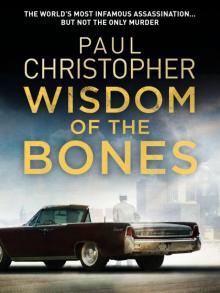 Wisdom of the Bones
Wisdom of the Bones The House of Special Purpose
The House of Special Purpose The Second Assassin
The Second Assassin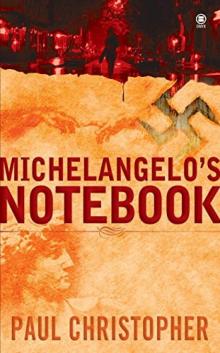 Michelangelo's Notebook
Michelangelo's Notebook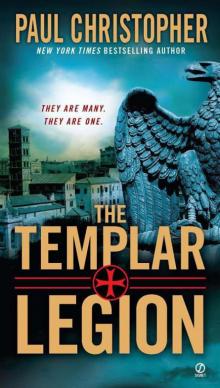 Templar Legion
Templar Legion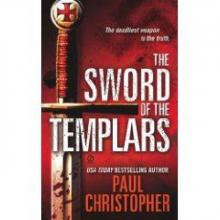 The Sword of the Templars t-1
The Sword of the Templars t-1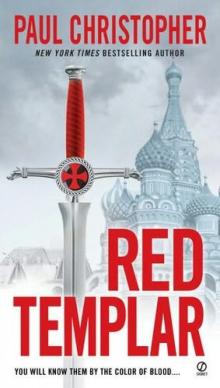 Red Templar
Red Templar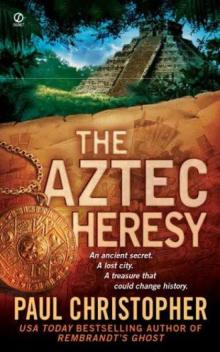 The Aztec Heresy
The Aztec Heresy The Templar Legion
The Templar Legion Rembrandt's Ghost
Rembrandt's Ghost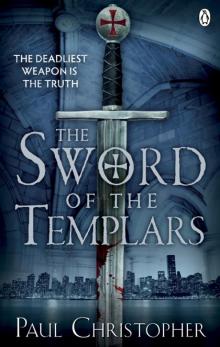 Sword of the Templars
Sword of the Templars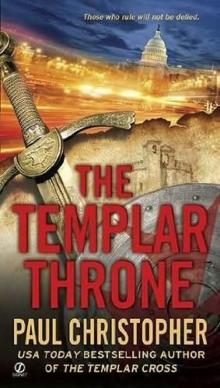 The Templar throne t-3
The Templar throne t-3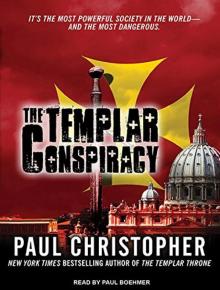 The Templar Conspiracy
The Templar Conspiracy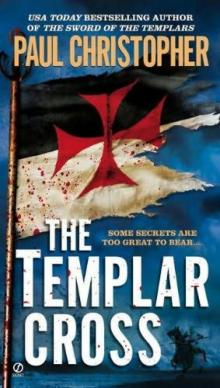 The Templar Cross t-2
The Templar Cross t-2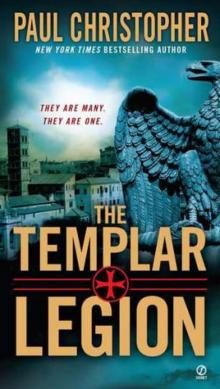 The Templar Legion t-5
The Templar Legion t-5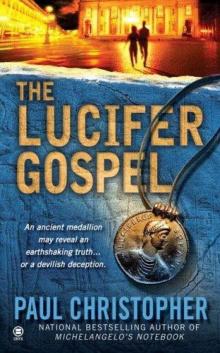 The Lucifer Gospel
The Lucifer Gospel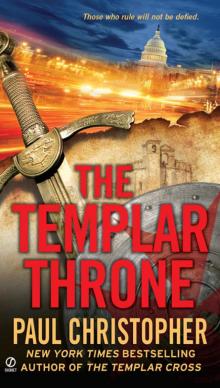 Templar Throne
Templar Throne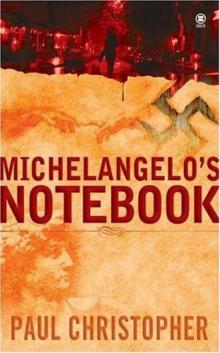 Michelangelo_s Notebook fr-1
Michelangelo_s Notebook fr-1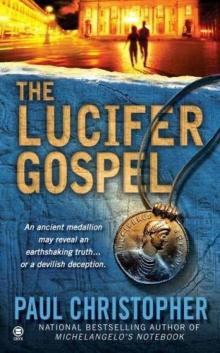 The Lucifer Gospel fr-2
The Lucifer Gospel fr-2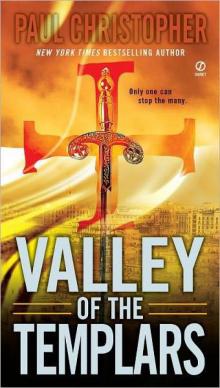 Valley of the Templars ts-7
Valley of the Templars ts-7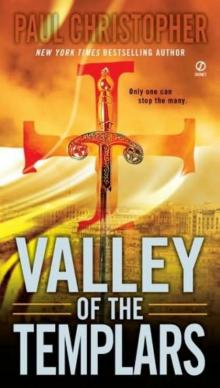 Valley of the Templars
Valley of the Templars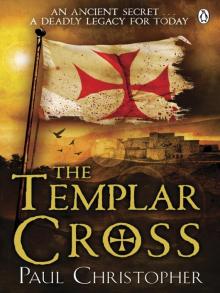 Templar Cross
Templar Cross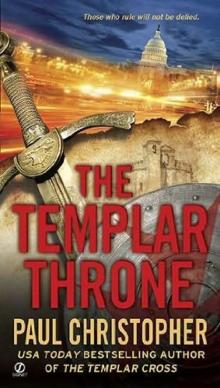 The Templar Throne
The Templar Throne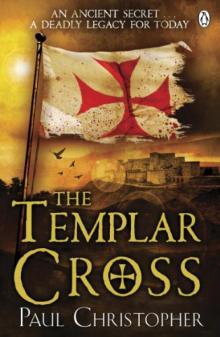 The Templar Cross
The Templar Cross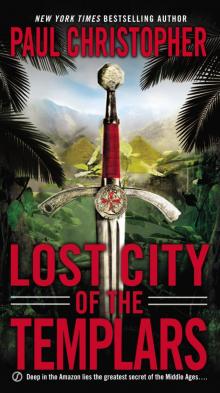 Lost City of the Templars
Lost City of the Templars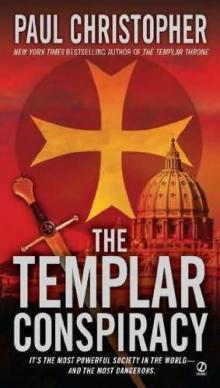 The Templar conspiracy t-4
The Templar conspiracy t-4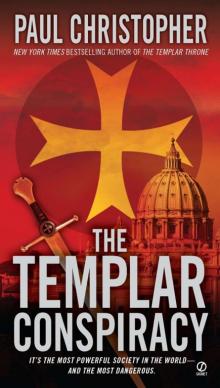 Templar Conspiracy
Templar Conspiracy